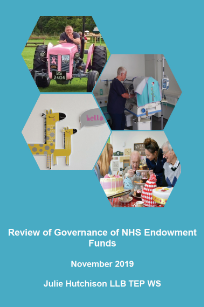Technical / Technical review – December 2021
System oversight framework segmentation decisions for all integrated care systems (ICSs) and trusts have been set out by NHS England and NHS Improvement. The national bodies have placed the local organisations into four segments, indicating the scale and general nature of support needs. Bodies in segment 1 have no specific needs, while those in segment 4 have been judged to require mandated intensive support. Five of the 42 ICSs have been placed in segment 4, while just one system – Frimley Health and Care – has been assessed as segment 1. The remainder are almost evenly split across segments 2 and 3. In the provider segmentation, released at the same time, 32 trusts and foundation trusts were in the top segment, having the least support needs.
HM Revenue and Customs has confirmed that any potential reform on the public sector VAT regime will not be implemented within this Parliament – so not before 2024/25. In August 2020, the Treasury issued a consultation paper setting out options to simplify section 41 rules, under which public sector bodies claim refunds for VAT for goods and services. Its preferred option was a full refund model. VAT would be recoverable on all goods and services used in non-business activities and the Department of Health and Social Care’s expenditure limit would be reduced to reflect this reduction in cost. A response paper to the original consultation was issued in July. Further work and engagement is under way ahead of any decision being taken. The HMRC confirmation that potential changes remain some years away was given in an update to the HFMA VAT Sub-committee.
 A review of the governance of Scottish NHS endowment funds has found an ‘inherent conflict of interest’ in the structure of funds. This relates to the dual role of NHS board members, who are also officers of the corporate trustee of the related charity. The review, which was completed in 2019 but had publication delayed by Covid-19, made 28 recommendations to improve governance, including replacing the existing corporate trustee with a charitable board, which would comprise an independent chair and a majority of independent members. It also recommended publicly available governing documents for each fund and the introduction of limited liability for board members of the funds. In a statement to the Scottish Parliament, health and social care secretary Humza Yousaf said he accepted the review recommendations ‘absolutely in principle’. But he said there was work to be done on precisely how they are taken forward. Fully adopting the recommendations would require legislative change.
A review of the governance of Scottish NHS endowment funds has found an ‘inherent conflict of interest’ in the structure of funds. This relates to the dual role of NHS board members, who are also officers of the corporate trustee of the related charity. The review, which was completed in 2019 but had publication delayed by Covid-19, made 28 recommendations to improve governance, including replacing the existing corporate trustee with a charitable board, which would comprise an independent chair and a majority of independent members. It also recommended publicly available governing documents for each fund and the introduction of limited liability for board members of the funds. In a statement to the Scottish Parliament, health and social care secretary Humza Yousaf said he accepted the review recommendations ‘absolutely in principle’. But he said there was work to be done on precisely how they are taken forward. Fully adopting the recommendations would require legislative change.
The Exceptional Quarterly Collection project closed at the end of October. NHS England and NHS Improvement set up the cost collection last year to help develop an understanding of the costs of delivering Covid care and the impact of the Covid pandemic on the unit costs of non-Covid care. The voluntary collection, completely separate from the National Cost Collection, involved the submission of aggregate level costs, for example with acute trusts submitting average costs for healthcare resource groups, and had a more limited scope. In a costing newsletter, the national bodies said the decision had been taken following extensive engagement with the trusts involved and the wider costing sector.
Integrated care board (ICB) allocations will include funding for most acute, ambulance, community and mental health services, according to new guidance. Management of NHS resources by integrated care boards said allocations will be based on the existing needs-based formula used for clinical commissioning group budgets, ensuring financial stability and equity. ICBs will have the power to set place-based budgets – they will not be set by NHS England and NHS Improvement. ICB running costs in 2022/23 will be the equivalent of an aggregate of CCG administration allowances for 2021/22. Providers will map to a single ICB – at least initially – with ‘significant providers’ of services to an ICB expected to be formal partners of the ICB. The partnership will mean that providers will have to agree to the system five-year plan and annual capital plan. They will also be able to receive ICB grants and participate in its governance. The guidance was published on the Future NHS platform.
Related content
We are excited to bring you a fun packed Eastern Branch Conference in 2025 over three days.
HFMA members, associates and friends come together again for the biggest and most prestigious HFMA event of the NHS finance calendar.